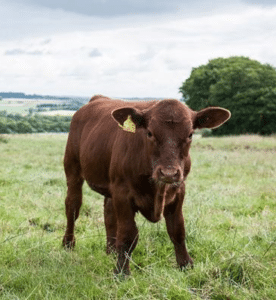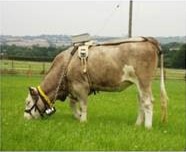Rothamsted Research is the longest-running agricultural research station in the world and has a track record of 175+ years of cutting-edge science and high-impact innovation.
The sensors and predictive modelling capability of the “Farm Platform” at Rothamsted’s North Wyke site makes it one of the most instrumented farms in the world. It can assess both grassland and, more recently, arable agricultural systems.
High-resolution data enables research teams to conduct experiments focused on addressing agriculture’s most pressing challenges. These include, for example, mitigating climate change, protecting natural resources, and sustaining the rural economy in grassland dominated areas.
The key research aim is sustainable food production and land use meeting societal, environmental and economic needs – linking Internationally via the Global Farm Platform Network and related data collection networks. The knowledge and wisdom generated are used to direct real-world farming practices to better manage land-use and agricultural production systems in a sustainable fashion.
- Rothamsted North Wyke Farm Platform is a unique facility, essentially a laboratory on a farm-scale. It is used to carry out research on various aspects of sustainable food production addressing the environment pollution and climate change. The farm platform is expanded over an area of 70 ha farm with three different farming systems (permanent pasture, mix with legumes/clover and high sugar & deep-rooted grasses with future of expansion to arable farming).
- Each farmlet (~22ha) has grassland keeping Beef and Sheep. The fields are hydrologically isolated and have flume labs to collect runoff which is measured every 15 minutes. With a network of around 280 sensors, data is collected on soil, plant and water interactions. This provides a unique opportunity for studying sustainability, emissions, water pollution, soil and nutrients loss with a view of testing interventions to improve the efficiency of grassland systems. Rothamsted North Wyke produce almost 9 million data sets a year which is made available through Farm platform data portal
- We are developing machine learning on mapping the emissions from grasslands and improving the performance of the livestock production systems.
- From 2019, we will include arable crops into the Farm platform to compare cereals production in this kind of landscape to compare replacing ruminants. This would be a great experiment to measure the cereals carbon footprint.
- The knowledge generated by our researchers can then be used to inform farming practices on the commercial farms to better manage their land and livestock production systems.
We currently have the following sensors deployed on our farm platform to collect data:
- Water and nutrient detecting sensors: soil loss, turbidity, total N (mineral), total C, total P, olsen P, water-extractable P, resin extractable P, organic P, K, Mg, inorganic N (nitrate & ammonium), sulphur, methionine, selenium.
- Soil sensors: soil moisture, pH, Soil organic matter, Soil organic carbon, hydraulic conductivity, field capacity, shear strength.
- Emissions sensor: greenhouse gas emissions both to the atmosphere (N2O), CO2, methane. Introduced greenfeed tech to measure methane from housed livestock. The emissions out in the field are measured through Li-cor System and Eddy Covariance towers.
- Livestock sensing: monitor animal health and livestock tracking both for cattle and sheep (use of accelerometers to monitor animal movement to measure animal health and welfare). Use of boluses and neck collars to collect information about the animal activity.

